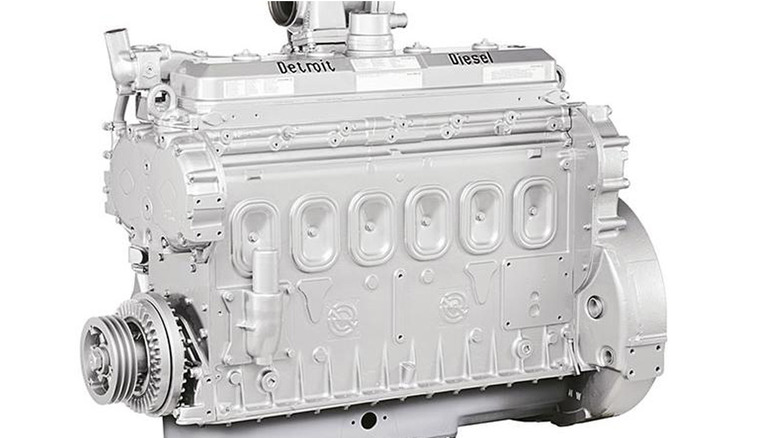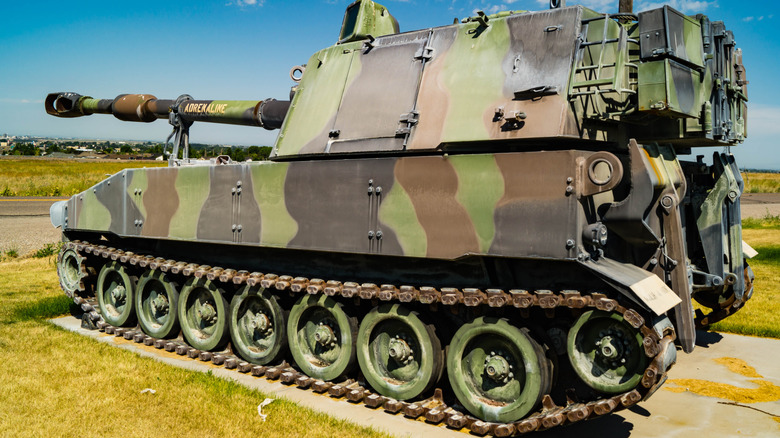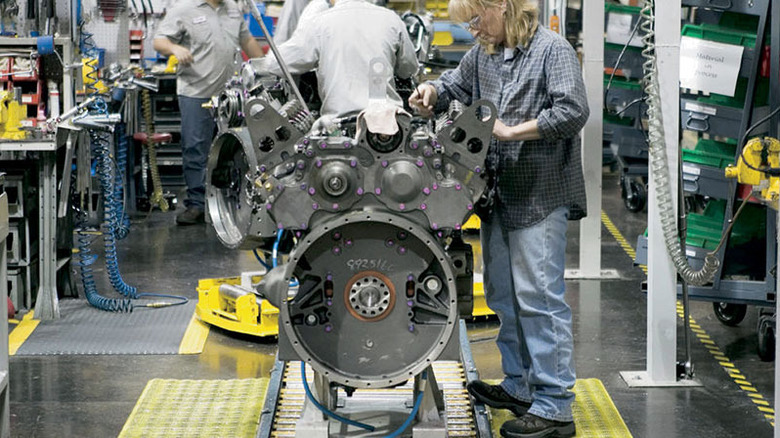What Is The 318 Detroit Diesel Engine & What Made It Popular?
There are certain engines that move from being mere powerplants to becoming part of motoring folklore. Generally, these are engines that power vehicles worthy of motoring legend status, such as the iconic engines that powered the golden era of the muscle car. The Detroit 318 diesel engine can't claim such a heritage, but mention its name in the right circles and you'll find that this engine — in its own way — has as much right to a place in motoring's hall of fame as the more glamorous V8s at the heart of the muscle car era.
The Detroit Diesel 318 — or 8V-71 to give it its official designation — was introduced in 1957 by General Motors' Detroit Diesel Division, as the company was then known. The engine was part of the legendary Series 71 2-stroke diesel engines that powered many vehicles, from buses to landing craft. It was also used to power semi-trucks, generators, cranes, bulldozers, and many other pieces of industrial equipment. The 318 reference is a referral to the naturally aspirated version's horsepower, while its official designation offers some clues about its construction. Breaking it down, the term 8V-71 refers to the number and configuration of the cylinders (V8) and the displacement of each cylinder (71 cubic inches), giving the 318 a total displacement of 568 cubic inches, or 9.3 liters. And it's that combination of a V8 cylinder arrangement and 2-stroke combustion that made it special.
Why was the Detroit Diesel 318 so popular?
At first glance, there isn't an awful lot to separate the 318 from its competitors. It was a diesel engine designed for heavy-duty operations; nothing very special about that. But it did have one quirk that made it stand out: it was a 2-stroke diesel engine. However, unlike 2-stroke gas engines, a 2-stroke diesel engine doesn't require a mixture of fuel and oil, nor does it use fuel as a lubricant. This configuration gave the 8V-71 several advantages, including higher horsepower per unit of displacement and better thermal efficiency than a similar 4-stroke. It also meant that the engine was reversible (able to run clockwise or anti-clockwise), a point that made the engine highly suitable for many marine applications.
Now, let's talk about sound. There is something about the sound of a V8 that stirs deep emotions in all petrolheads, but does a V8 do the same for diesel-heads? At least in the case of the Detroit Diesel 8V71, the answer is certainly yes. This is an engine that's a V8 and shouts about it, delivering its power with a rawness that enthusiasts still romanticize. It may not have powered iconic muscle cars, but it certainly sounded the part. Finally, these engines are renowned for their reliability, a point illustrated by the fact that there are allegedly still around 250,000 Detroit Diesel 2-stroke engines operating all over the world, many of which are from the legendary Series 71 range.
The end of the road — and a legacy that won't die
Every good story must come to an end. And, in the case of Detroit Diesel 318 and the rest of the 71 series, it was 1995 when the fateful day arrived. However, since the engine can trace its history back to 1938, it could certainly claim to have earned its retirement. Ultimately, it was the engine's emissions record that sounded the death knell. One of the reasons that 2-stroke engines are now less popular is that they produce more pollution. Effectively, this meant that the engine finally began to show its age once emissions regulations began to tighten.
But if every good story ends, the truly great ones leave room for a twist — and such is the case with the Detroit Diesel 318. In 2006, just over a decade after the 71-series ended production, the rights to the Detroit Diesel 2-stroke production line were acquired by a company called mtu Solutions, which is part of the Rolls-Royce group. The company manufactures a wide range of spares for the engine and ensures that the Series 71 legacy continues with new eight-cylinder versions for military use. The original Detroit Diesel may be gone, but its legacy continues.


